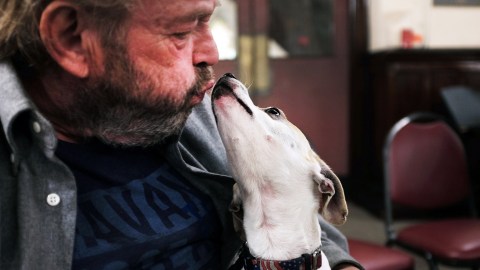The Difference Between Empathy and Compassion Is Everything

Compassion and mindfulness are two wings of the same bird, and we need both in order to live in a wise way. “Mindfulness” is the word du jour, with so many articles claiming its spectacular results that some have dubbed it “McMindfulness.” But what about compassion? The folks over at NPR have started a conversation about it, and have invited their audience to send them stories of random acts of compassion. What is compassion? How is it different from empathy? How do we implement it in our daily lives — and what is the science behind all this, anyway?
Empathy is a gateway to compassion. It’s understanding how someone feels, and trying to imagine how that might feel for you — it’s a mode of relating. Compassion takes it further. It’s feeling what that person is feeling, holding it, accepting it, and taking some kind of action. In metta or loving-kindness meditation practice, one can silently repeat phrases to others as a way of acknowledging them and our own interconnectedness. It’s easy and highly portable. When I’m on the train, I silently repeat phrases like, “May you be happy; may you be safe; may you be at ease; may you be free from suffering,” to the passengers, particularly those who look like they need it most. This plants the seeds of compassion, and we can find ourselves acting in compassionate ways that never would have occurred to us before. As it turns out, this ancient practice has some amazing scientific discoveries to give it cred.
Barbara Fredrickson led a study at the University of North Carolina that showed that with just seven weeks of metta practice, participants were found to have increased life satisfaction and reduced depressive symptoms. It’s also been proven to decrease your bias toward others, decrease migraines and emotional tension, and increase gray matter in our brains. Compassion is empathy in action, and your actions don’t have to be big or life-changing. Maybe you give a homeless man a poncho in the pouring rain, or maybe you give your full attention to someone who really needs to talk. Compassion is all about realizing that we ultimately all want the same things out of life (love, safety, health, happiness) and responding in an appropriate way. With a little practice, we can all become more compassionate toward ourselves and others. It’s a bold, brilliant, and radical choice to go against the stream of self-interest and self-centeredness, but then, I’ve always been a fan of disruption and revolution. Viva la metta revolution!
For more reading on loving-kindness practice, check out this book by Sharon Salzberg.
—
Image caption: PHILADELPHIA, PA – SEPTEMBER 22: Craig, who is homeless, sits with his dog Chester at the Broad Street Ministry, (BSM) which serves thousands of free meals five days per week while also providing the homeless with a mail center, a clothes mending facility, counselling and medical screenings for the homeless and those that are in financial distress, on September 22, 2015 in Philadelphia, Pennsylvania.
Lori Chandler is a writer and comedian living in Brooklyn, NY. She has been published in The New York Times and on CollegeHumor. You can follow her on Twitter @LilBoodleChild to keep up with her latest pieces, performance dates, and wry observations.





